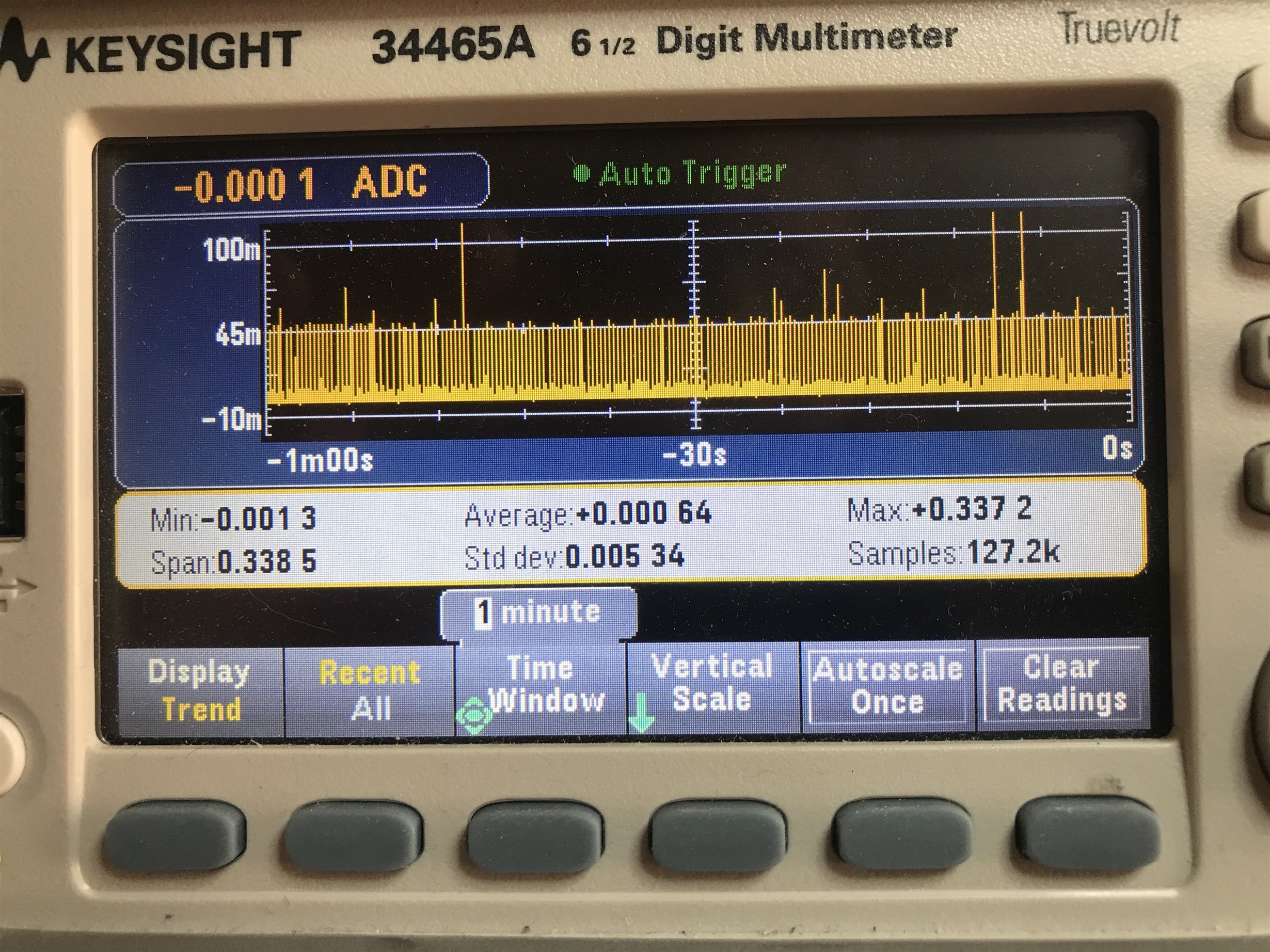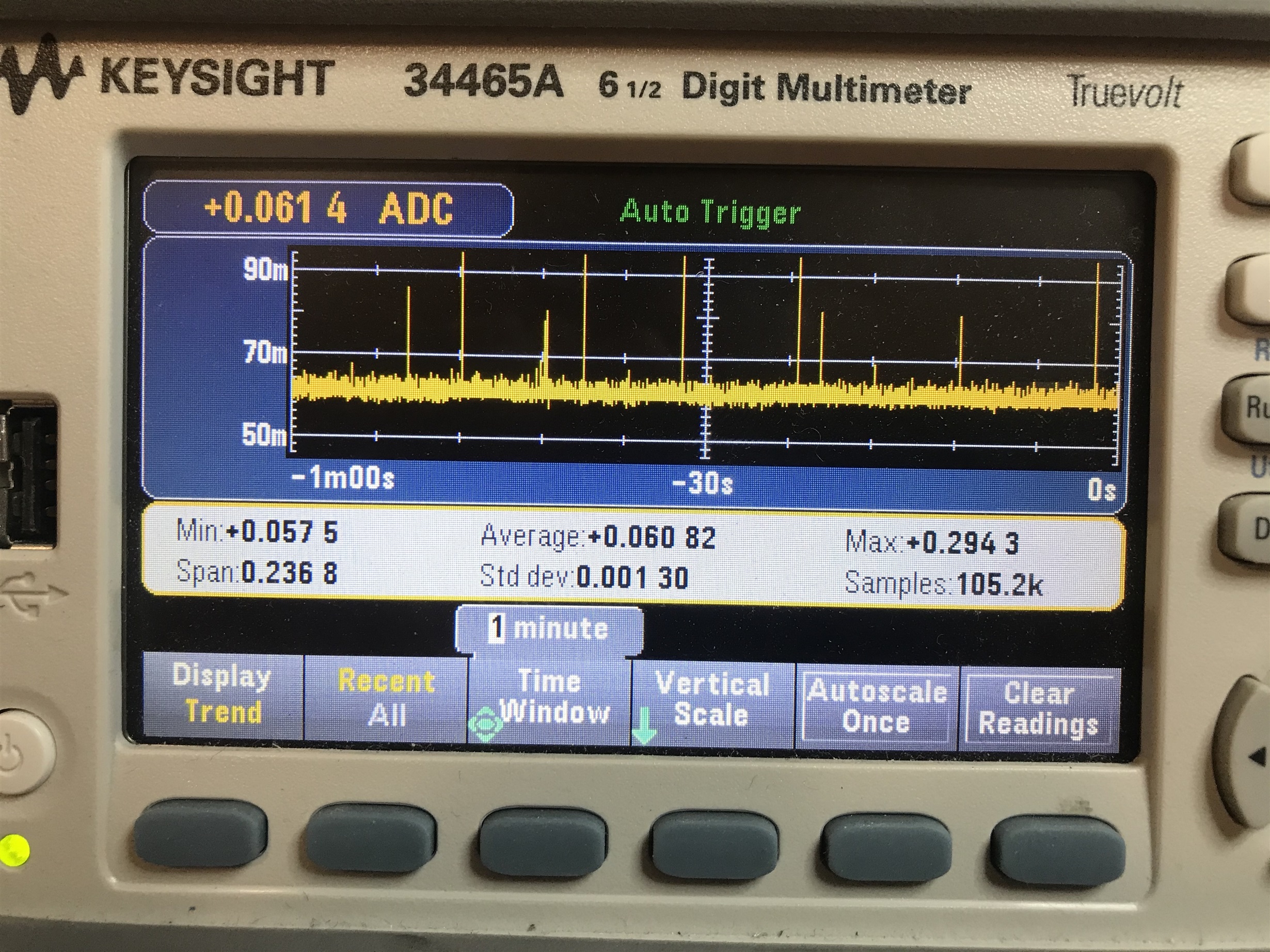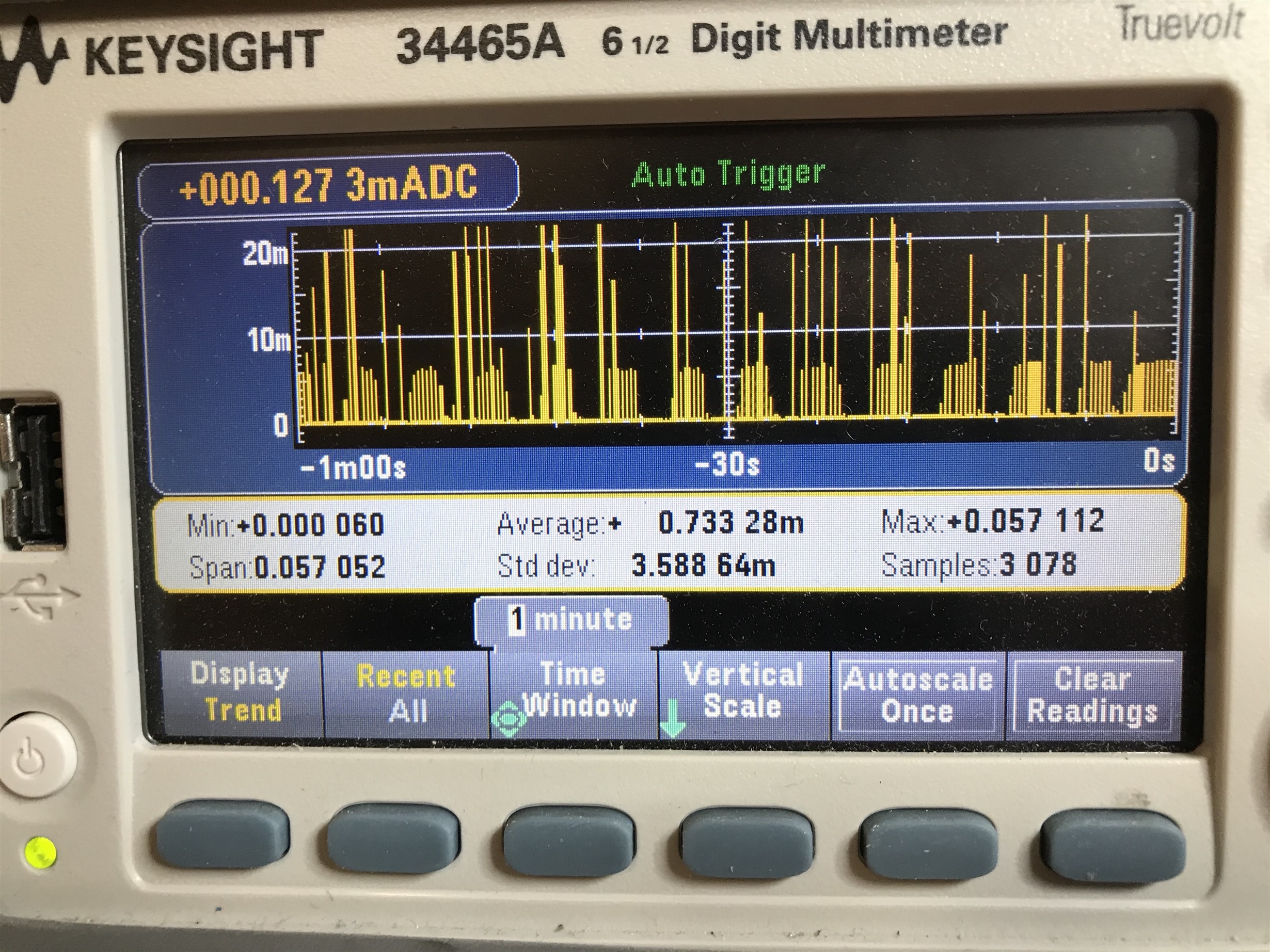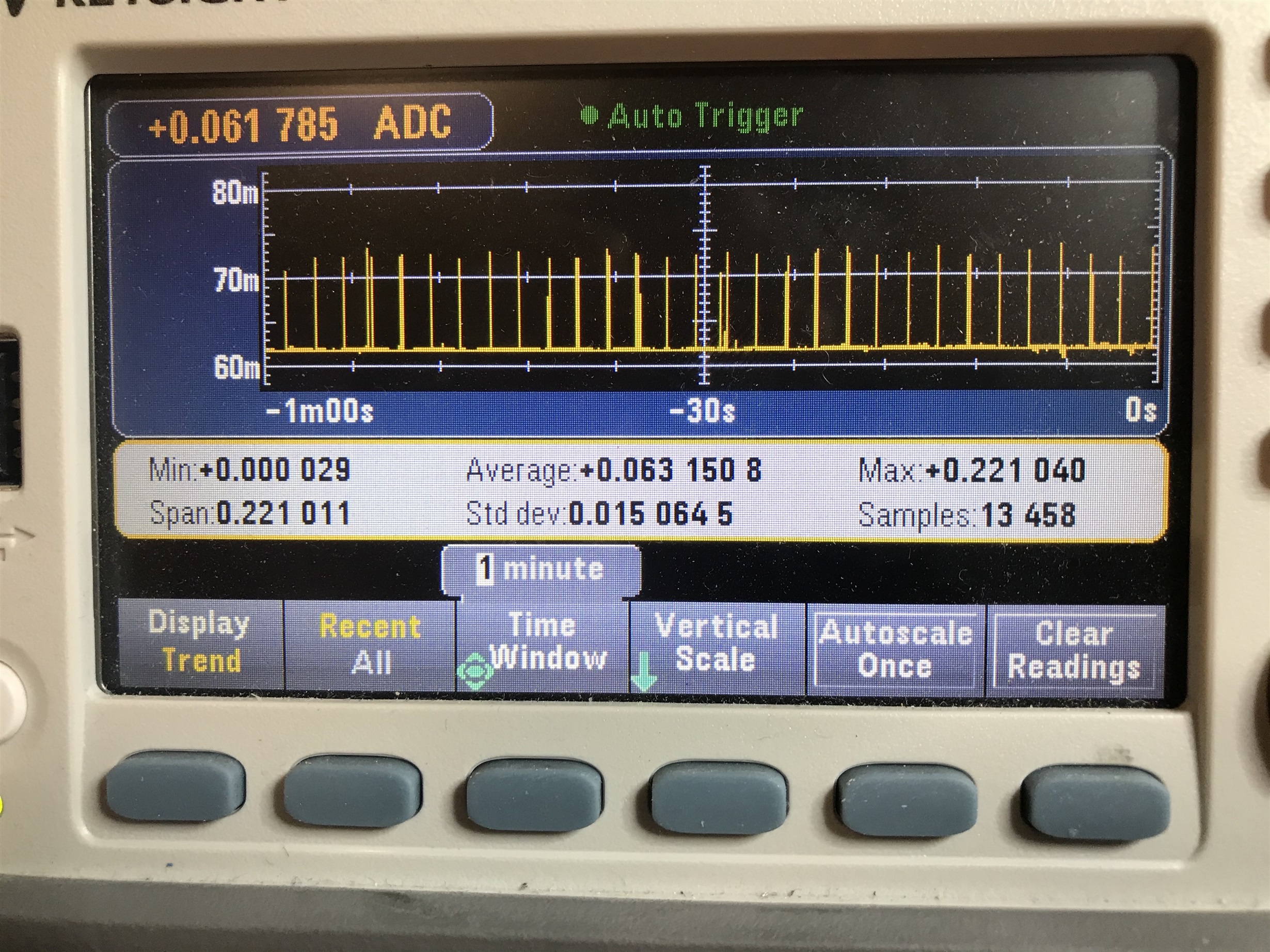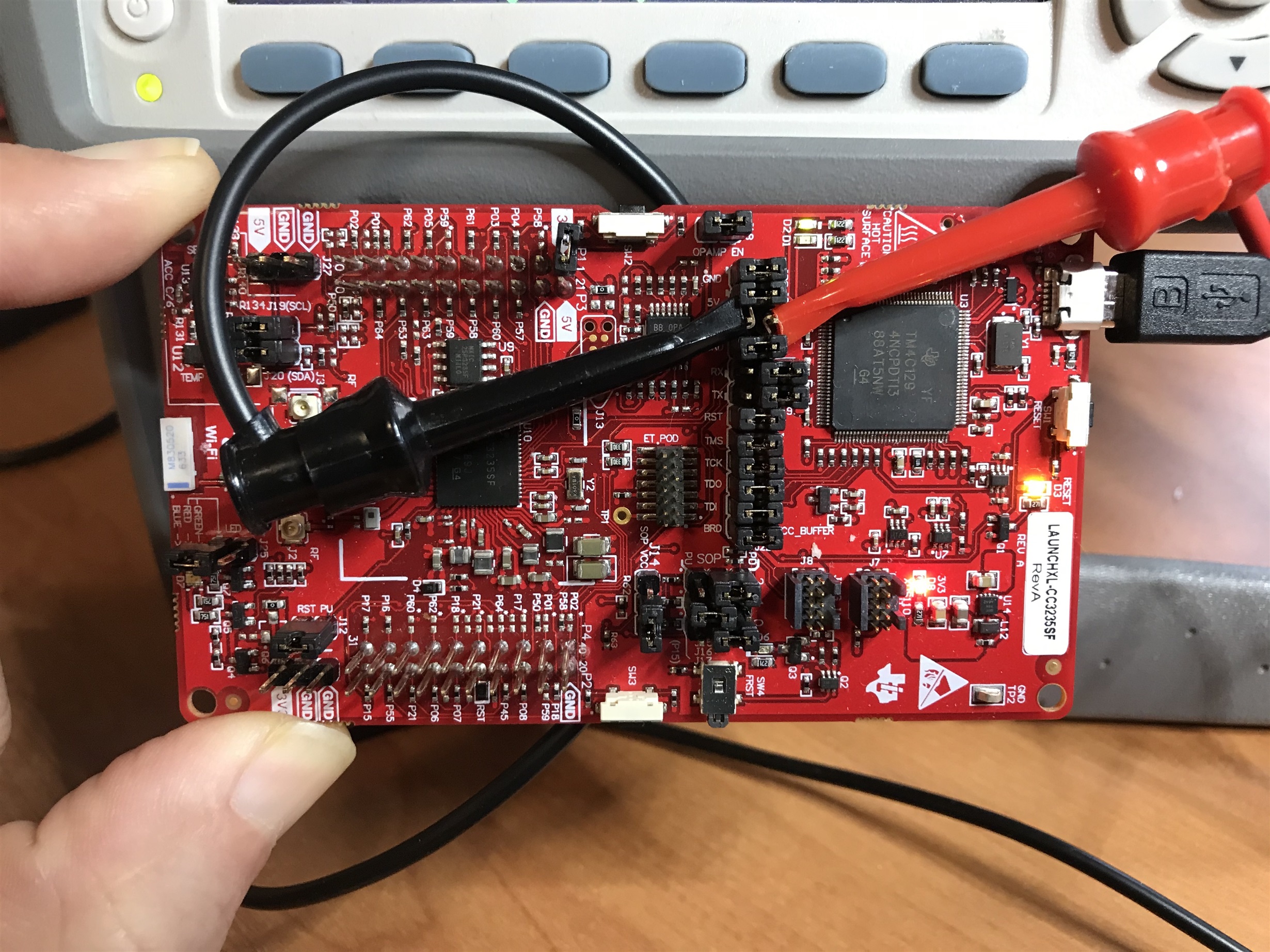Other Parts Discussed in Thread: CC3235SF
Hi folks,
I've been using the power_measurement example that comes with SimpleLink SDK and noticed that when I introduce a call to SNTP_getTime() the device doesn't seem to enter the low power state I expect. This one is most definitely a trap that I have fallen into and I assume I am missing something pretty basic here.
How do I maintain an Ultra Low Power state, assuming the TCP stack is kept on the Network Processor and the MCU only needs to wakeup to handle network events behind the TCP stack? I get the same outcome with FreeRTOS or TIRTOS, to illustrate this and with using SL_WLAN_IOT_LOW_POWER_POLICY:
Without the call to SNTP_getTime()I get 640uA, which is great:
Adding a call to SNTP_getTime() and successfully receiving network time (graph after time sync is received, now 60mA steady):
Any pointers appreciated.
EDIT TO ORIGINAL POST: Please see further below, after investigating it appears a call to SlNetIfWifi_getConnectionStatus() creates this situation.
Regards,
Will.


